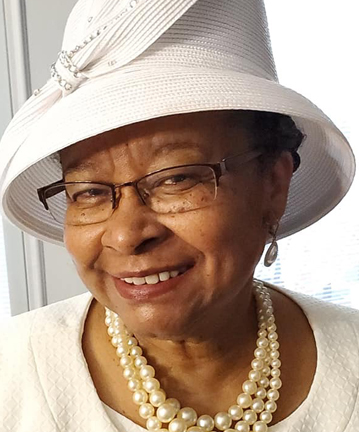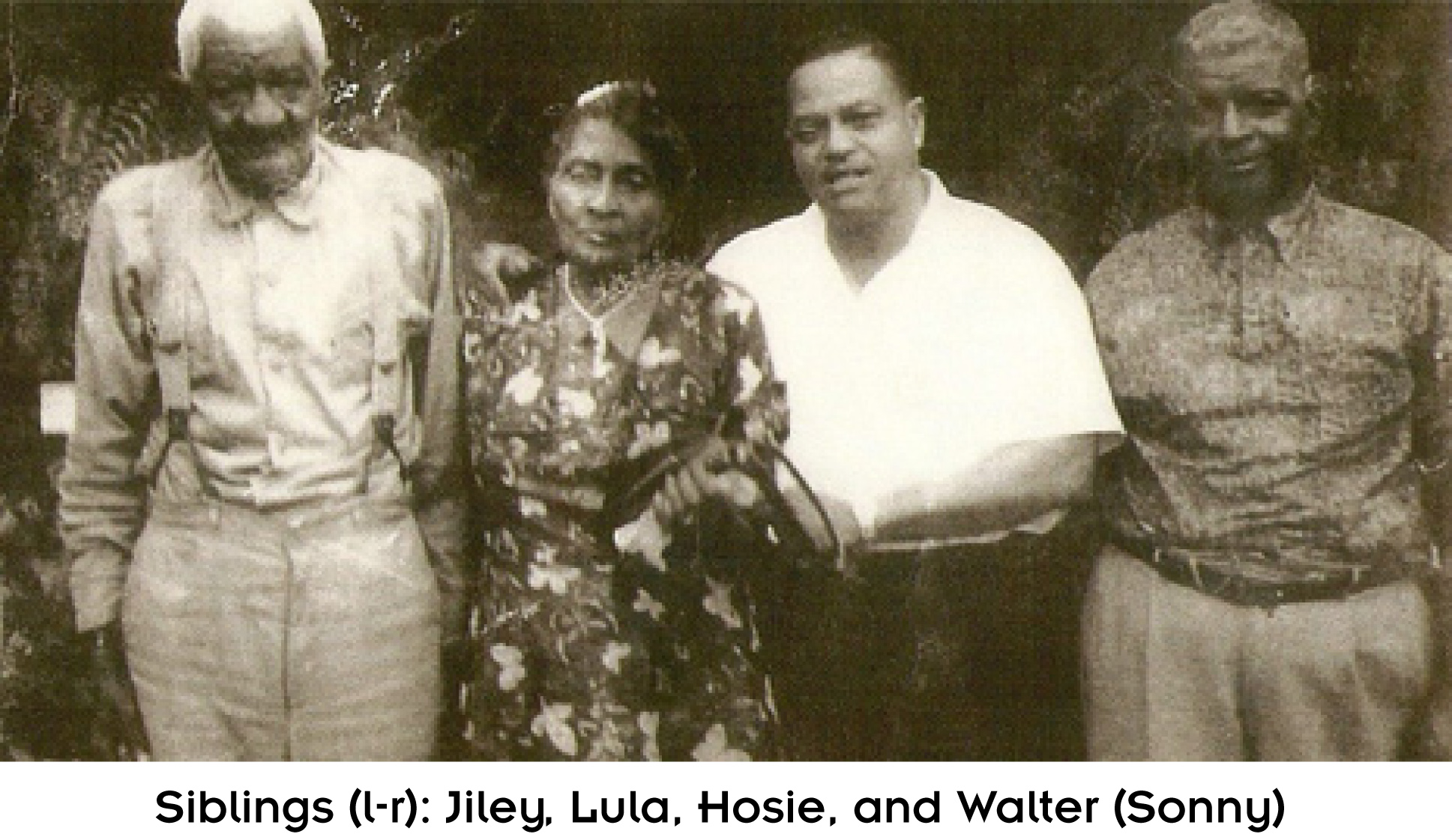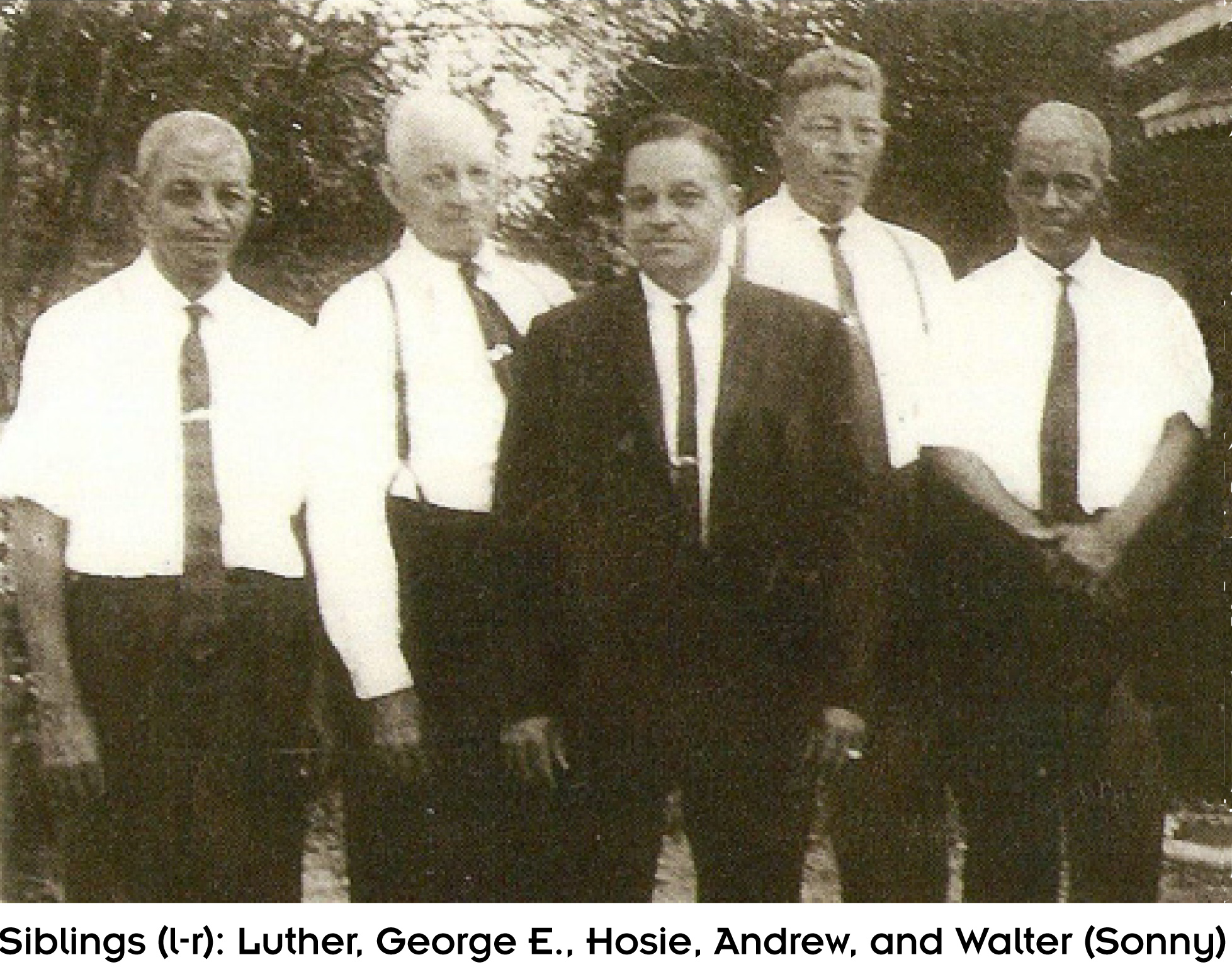ABOUT US
The Board of Directors of the Lula Cook Tompkins Scholarship Fund

Shirley J. Mathis Carter, Vice-President
Descendant of Walter (Sonny) Cook
Works as a Learning and Development Manager
Grew up in Bainbridge, GA
Lives in Houston (Spring), TX
Serves on the Scholarship Fund Communications and Nominations Committees

Aaron L. Cook, Ed.D, Treasurer
Descendant of George E. Cook
Works as an Education Consultant
Grew up in Donora, PA
Lives in Pittsburgh, PA
Serves on the Scholarship Fund Finance and Fundraising Committees

Clark Cook
Descendant of Andrew Cook, Sr.
Retired High School Biology Teacher
Grew up in Clairton, PA
Lives in New York, NY
Serves on the Scholarship Fund Communications and Fundraising Committees.

Margaret Elizabeth Bush Denson
Descendant of Essie Cook Washington
Retired Manager at Motorola
Grew up in Bainbridge, GA
Lives in Lake City, FL
Serves on the Scholarship Fund Communications and Family History Committees

Robert Fears
Descendant of George E. Cook
Retired staff at Gibault School in Terre Haute, IN
Grew up in Donora, PA
Lives in Terre Haute, IN
Serves on the Scholarship Fund Fundraising Committee

Sarah Fears
Descendant of George E. Cook
Assistant Director of Student Philanthropy at the Penn Fund
Grew up in Terre Haute, IN
Lives in Terre Haute, IN
Serves on the Scholarship Fund Communications and Fundraising Committees

Cedric Hardimon
Descendant of Essie Cook Washington
Retired Salesman at Frito-Lay
Grew up in McKeesport, PA
Lives in Houston (Katy), TX
Serves on the Scholarship Fund Finance and Fundraising Committees

Thorvard Carlos Hardimon
Descendant of Essie Cook Washington
Works at USPS
Grew up in McKeesport, PA
Lives in Richmond, VA
Serves on the Scholarship Fund Communications and Family History Committees

Briana S. Payne Johnson
Descendant of Essie Cook Washington
Grew up in Columbia, MD
Lives in Silver Spring, MD
Works as a Junior Business Analyst
Serves on the Scholarship Fund Communications and Family History Committees

Angela Hardimon Payne
Descendant of Essie Cook Washington
Works as a Nurse Informationist
Grew up in McKeesport, PA
Lives in Laurel, MD
Serves on the Scholarship Fund Nominations and Family History Committees

Nikicha Cook Wilson, Scholarship Fund President
Descendant of Walter (Sonny) Cook
Works as an Insurance Sales Manager
Grew up in Clairton, PA
Lives in Cleveland, OH
The Scholarship Fund President serves as an ex officio member of all committees.

Our Mission
To honor and encourage aspiring members of our family who demonstrate academic excellence.
Our Inspiration

Lula Cook Tompkins
November, 1882 – May 19, 1978
George W. Cook and Missouri Bell Kelly were married in 1878, in Colquitt, GA. The first home they shared was a small cabin, probably a former slave quarter, on a remote 100 acre parcel of land. The land was a wedding gift from George W.’s father, Willis Cook, a white plantation owner. Before the Civil War, Willis Cook’s thousands of acres were farmed by his 56 black slaves, one of them George W.’s mother. Incidentally, George W.’s wife, Missouri, was also the child of a black slave and her white “owner.”
George W. and Missouri raised thirteen children in their small cabin. The affable, close-knit family became known locally as “the black Cooks” or “the colored Cooks.” (Willis Cook, his wife and their children were “the white Cooks.”) To sustain themselves, the black Cooks raised chickens and hogs, and grew a variety of vegetables and fruits. Like most farm families in southwest Georgia, they also grew cotton, their cash crop. The children worked in the fields along side their parents. None of them attended school. There were no public schools for black children in Georgia until much later.
In 1914, two of the black Cook boys, George E. and Walter (Sonny), enlisted in the army and left home to serve in WWI. A year later, boll weevils, destructive insects from Mexico, reached Georgia, causing many consecutive seasons of widespread cotton crop failure. Millions of farm families, including the black Cooks, lost their principal source of income. George E. and Walter returned home in 1919 to an impoverished family living in an area where black people were being terrorized by white supremacists hellbent on re-institutionalizing the racial relationships that existed during slavery. Resistors were lynched, their mutilated bodies often displayed publicly for days. One of the black Cook boys, Jerry, fled Colquitt and never returned after a group of white men announced their intention to lynch him.
A year after returning home from the army, George E. heard that steel mills in the industrial Northeast were hiring uneducated black men like him. In fact, some friends of his had found jobs at a steel mill in Donora, PA. George E. married his fiancee, Mary Jane Smith, and they traveled by train and bus to Donora. After George E. was hired at the Donora mill, three of his younger, unmarried brothers joined them in western PA. Later, in the 1030’s and 1940’s, they were joined by sixteen of their nephews and nieces (adult descendants of the black Cooks who did not join the Great Migration). Because, in rural Georgia at that time, the rare public schools for black children were notoriously underfunded and often operated only 3 – 4 months of the year, most of the migrants were poorly educated. In the North, most of them had to take manual labor or service positions with little or no chance for advancement. (Until the late 1950’s, black men worked at US Steel only as manual laborers.)
When the migrants married, usually to other migrants from the South, they and their children formed a vibrant, close-knit outpost of their Colquitt family. What they prized most about their life in the Northeast, besides physical safety and jobs, was the opportunity for their children to attend neighborhood public schools through the 12th grade, and perhaps go to college. When an adult from the South interacted with younger relatives growing up in the North, it seemed every conversation began with the adult asking, “How are you doing in school?” and concluded with “Make sure you get a good education. That’s something they can’t take away from you.”
The Lula Cook Tompkins Scholarship Fund is a manifestation of the value our family continues to place on unity and education. Our organization awards family-funded scholarships to members of our family who are attending institutions of higher learning. In 2019, our first year, we awarded a scholarship of $820.00 to Briana Payne, a descendant of Essie Cook Washington who was a student at the University of Maryland. In 2021, we awarded two scholarships: $1540.00 to Bria Nicole Washington, a descendant of Essie Cook Washington who is a student at Grand Canyon University; and $385.00 to Nicole Teryl Johnson, a descendant of Walter (Sonny) Cook who is a student at Northern Illinois University. We will award a scholarship to at least one aspiring family member at each biennial family reunion.
_______________________________
Our family scholarship fund was named after George W. and Missouri Cook’s third child, Lula, who was born in 1882. On most days when she was a child, Lula worked in the fields with her parents and siblings. Some days, she worked as a housekeeping assistant in Willis Cook’s home. Somehow, in that house, when she was not performing chores, she learned to read and write. Later, as a teenager and as an adult, she volunteered to teach reading and writing to black children and adults at a one-room church school a few miles from her home. Willis Cook did not acknowledge Lula as his granddaughter. We are proud to say she was our aunt.



